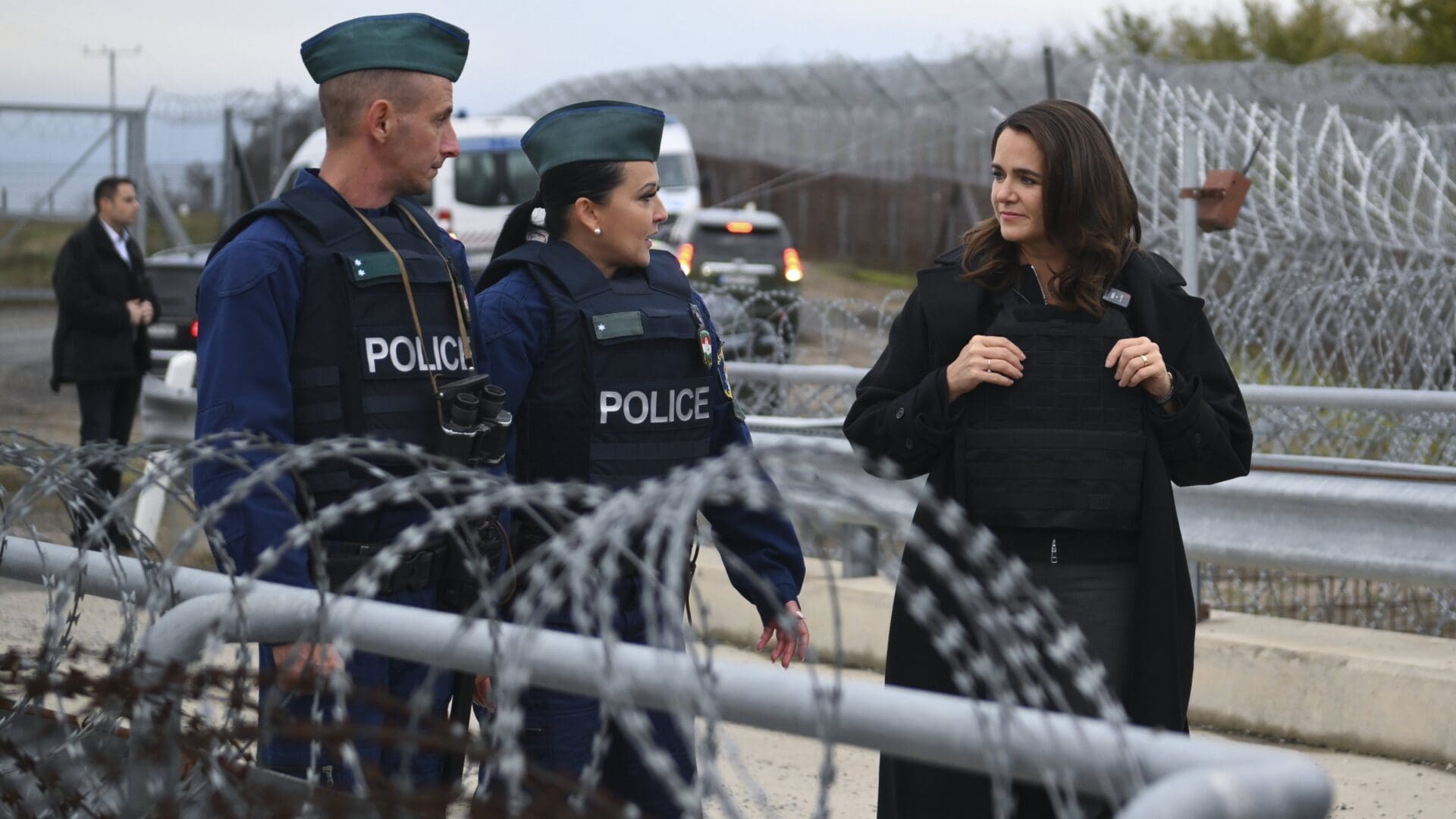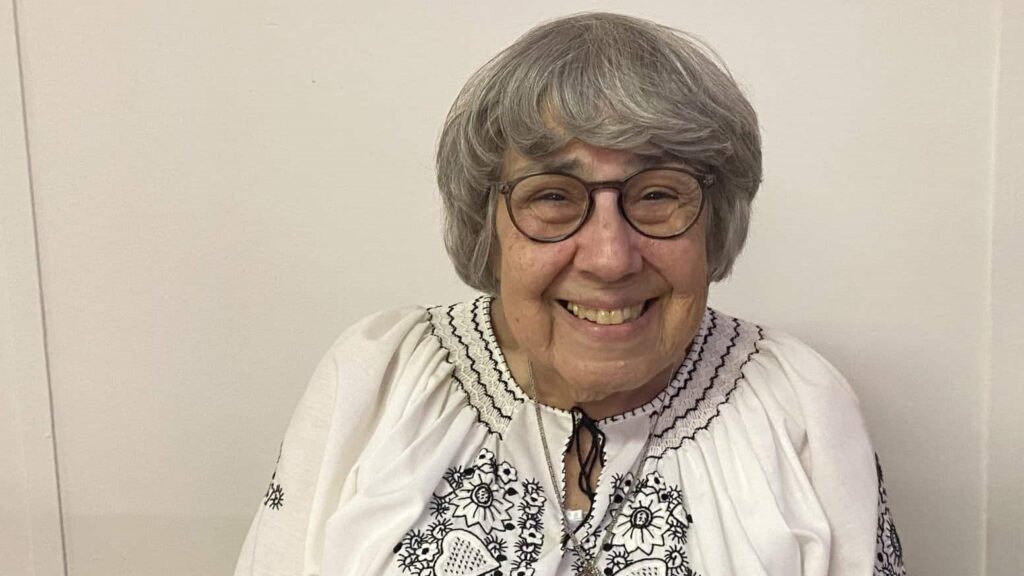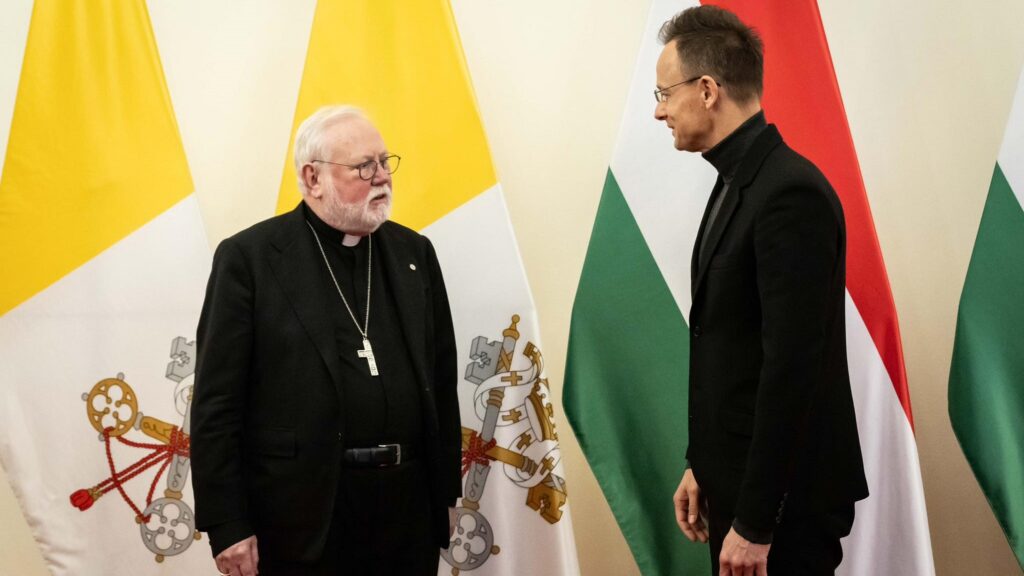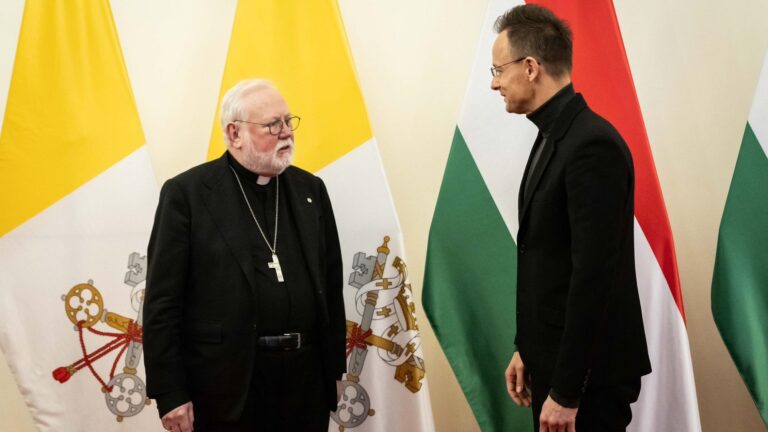In a Tuesday interview with a Bács-Kiskun county newspaper, President Katalin Novák underscored the imperative of making starting a family appealing to the next generation. She emphasized that it is possible to transform the demographic winter into a demographic spring. The President also remarked on her visit to the southern border, stressing that Hungarian families may feel safe thanks to those serving to protect the country’s borders.
Reflecting on her three-day visit to Bács-Kiskun County in an interview published in Petőfi Népe, the President articulated that the process of population decline is reversible. This optimism stems not only from Hungary’s unique, decade-long conscious efforts resulting in a ‘family-friendly turn’ in Hungarian social policy but also from her observations in Bács-Kiskun County, where she witnessed first hand the the strength of families.
During her visit to Tiszaalpár, President Novák paid homage to a family with five children, celebrating the birth of their youngest. She remarked that their example is proof that even in scarcity, one can contribute to society significantly. According to her, responsible child-rearing, and encouraging children to learn and work can provide an exit from challenging situations. She cited Bácsszentgyörgy as another example, where not a single child was born for ten years, but now there are twelve children under 18 in the village. President Novák asserted that even the smallest settlements in Bács-Kiskun County serve as examples that there is hope that more and more young people will dare to start families, and large families as well.
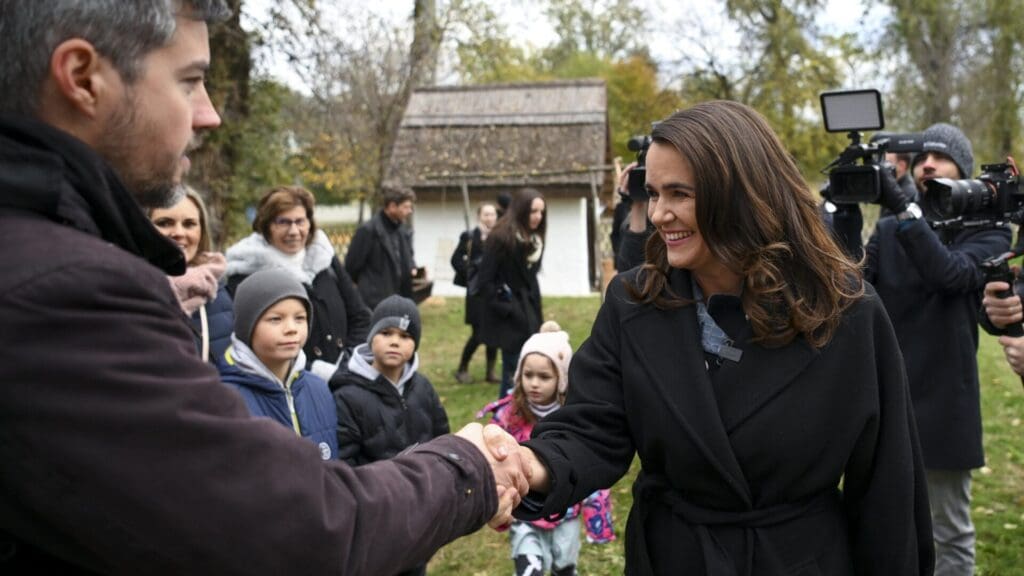
Discussing the Hungarian communities living beyond the borders, President Novák noted the challenging situation of the Hungarian minority in Transcarpathia. The ethnic Hungarians of the region do not only face the adversities if a war, but also infringement upon their collective rights as a minority. However, the President opined, there is a glimmer of hope, reminding that the Venice Commission has unequivocally stated that the Ukrainian leadership must guarantee minority rights, including the rights of the Hungarian community. While acknowledging that Ukraine is engaged in a war and European Union membership is a distant prospect, Novák urged the acceleration of the integration of Western Balkan countries, highlighting that their accession to the EU is in the interest of Hungary and Europe as a whole.
Remarking on her ties to the county, President Novák expressed a sense of returning home there. Her grandparents resided in Ágasegyház, her grandfather serving as a school director for decades, while her grandmother was a teacher. Moreover, her mother is from Kecskemét, and her father hails from Baja. However, beyond familial ties, she noted that she felt at home due to the kindness and hospitality of the local residents.
Addressing the escalating pressure on Hungary’s southern border, Novák mentioned her visit to Bácsszentgyörgy, where she met those serving there. She acknowledged the dedication and courageous stand of those defending the Hungarian border who make sure that Hungarian families are safe. She declared that the physical border defence system established by Hungary after the 2015 migration crisis sends a clear message: those who do not arrive in Hungary legally are not welcome. She stressed that the residents of Bács-Kiskun, a county whose significant portion is a border zone, understand this well, as they experienced the migration crisis first-hand.
Novák expressed gratitude to those serving at the border, acknowledging the challenges they face, and thanking them for safeguarding not only Hungary but also the security of Europe.
The President noted that also participated in the swearing-in ceremony of 99 cadets in Kiskunhalas, and highlighted their commitment to defence, patriotism, honour, courage, integrity, and order.

Regarding evolving gender roles and women’s societal empowerment, Novák reflected on Hungary having its first female President. This achievement conveys the message that the highest state office is open to women. She expressed the desire for Hungary to create conditions where women do not have to choose between family and work. Real freedom of choice, she asserted, means minimizing the financial barriers to choosing both family and a career. While acknowledging Hungary’s progress in this regard, Novák emphasized that there is still much work to be done.
Novák concluded by reminding of the importance of the Hungarian diaspora. She emphasized that the global presence of Hungarians is a valuable resource for the Hungarian nation, and that as the head of state, she has made it her mission to visit Hungarian diaspora communities.
Related articles:
Sources: Hungarian Conservative/Petőfi Népe/BAON.hu/MTI

